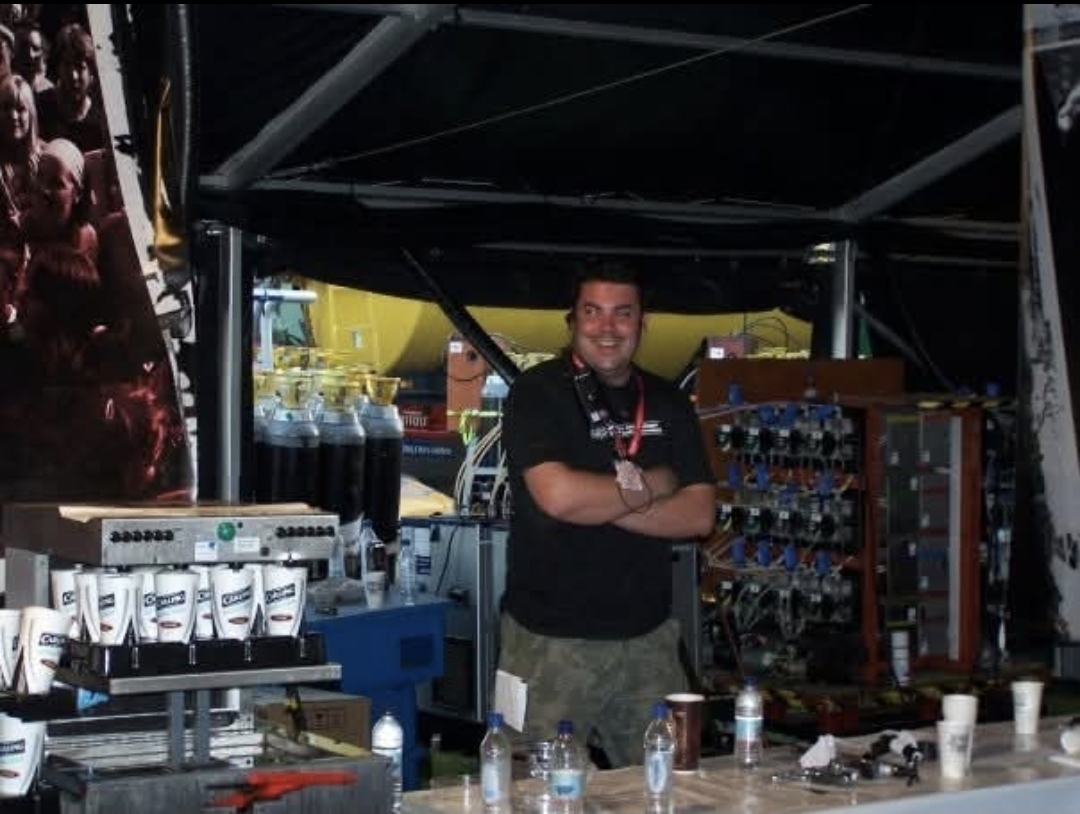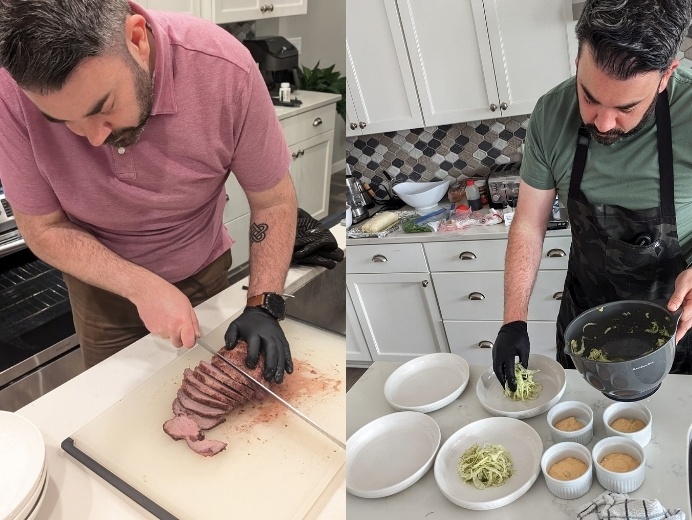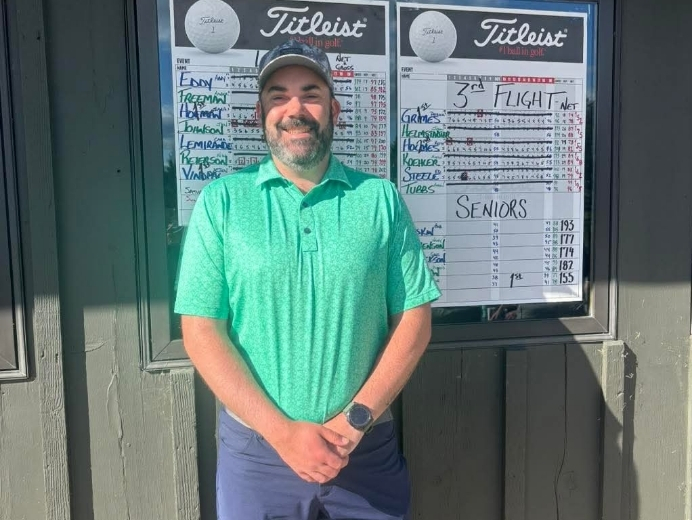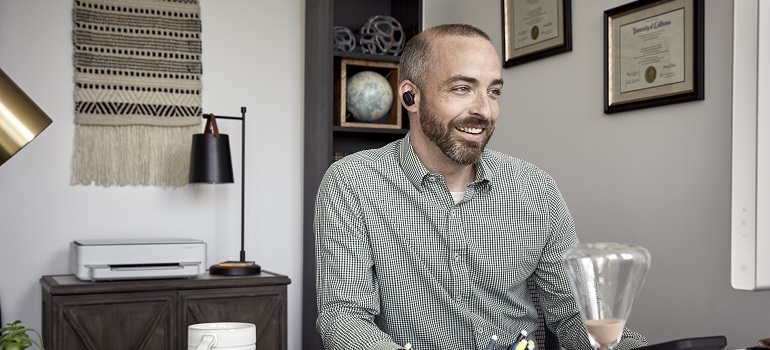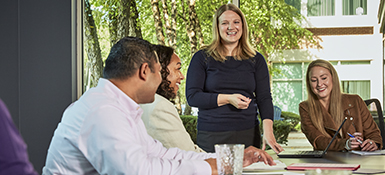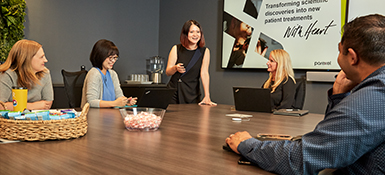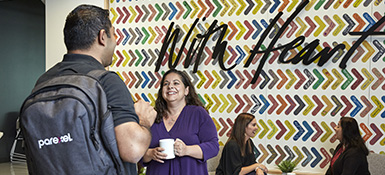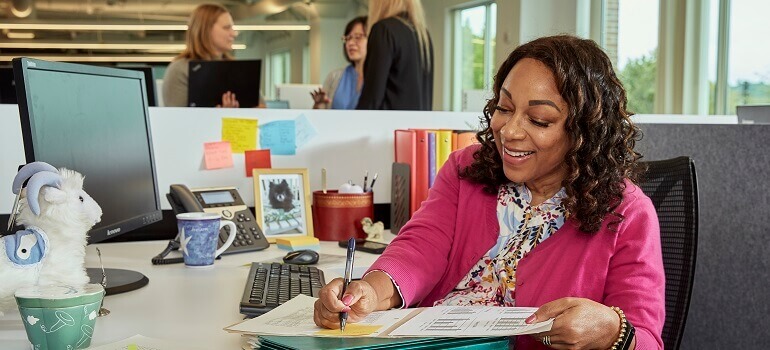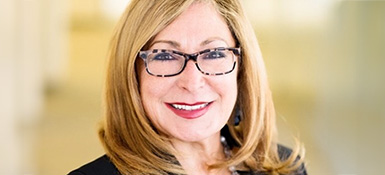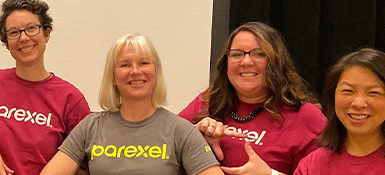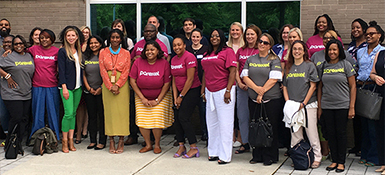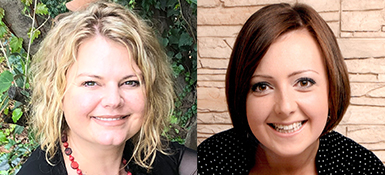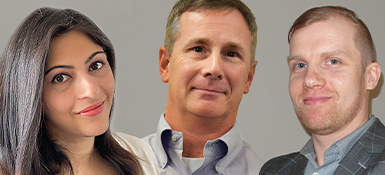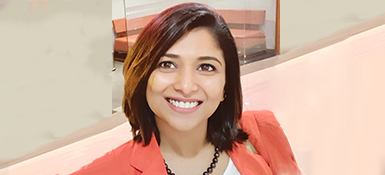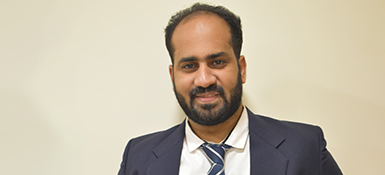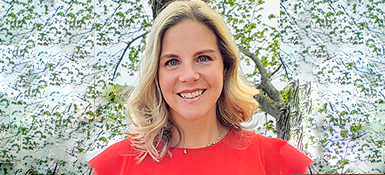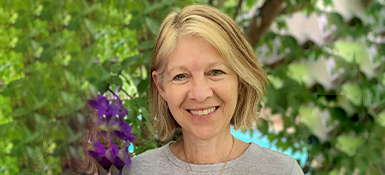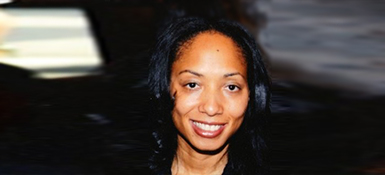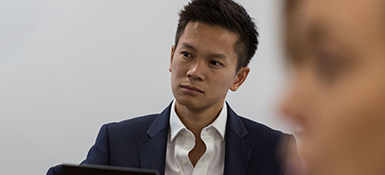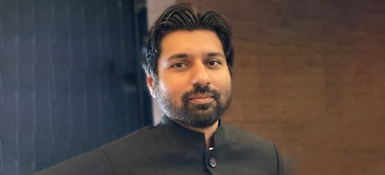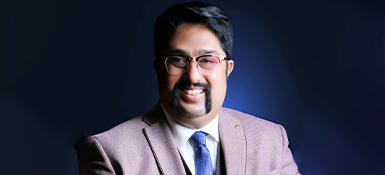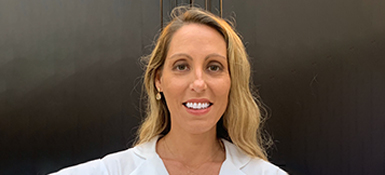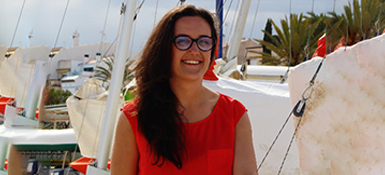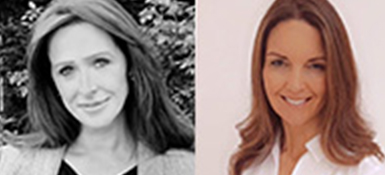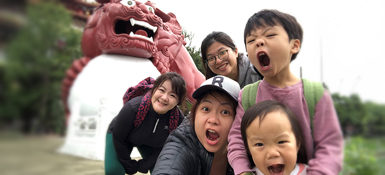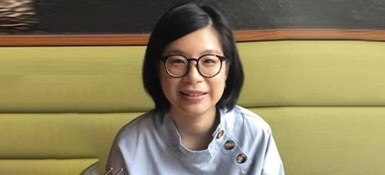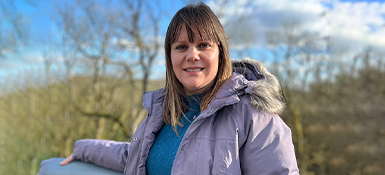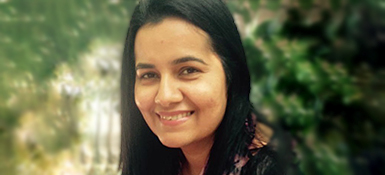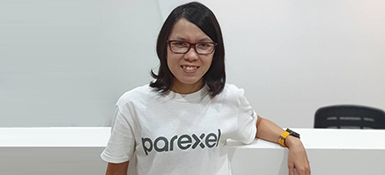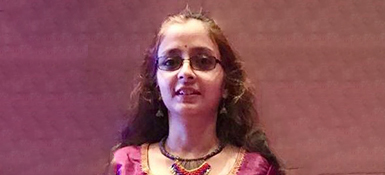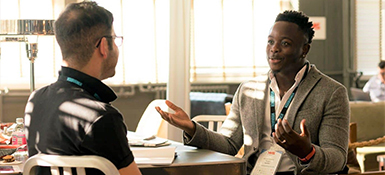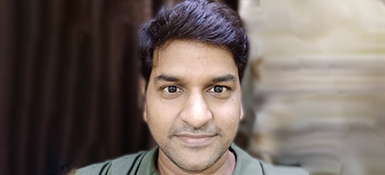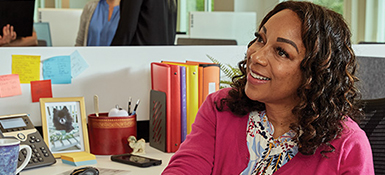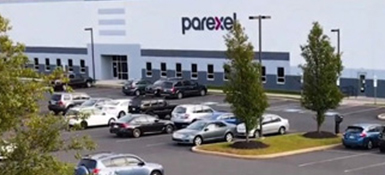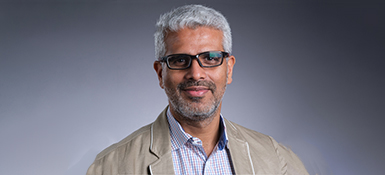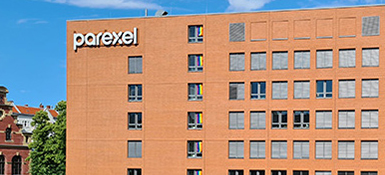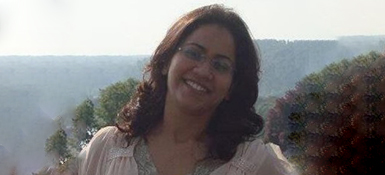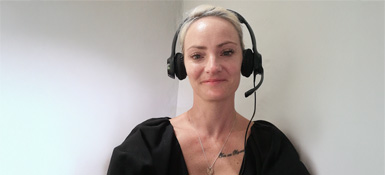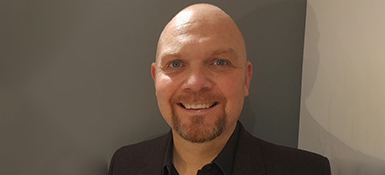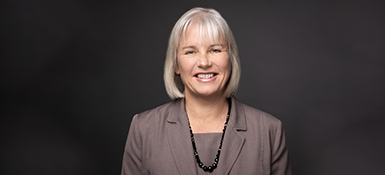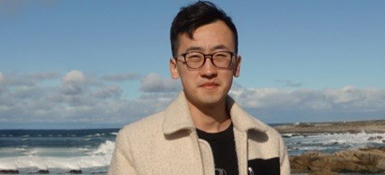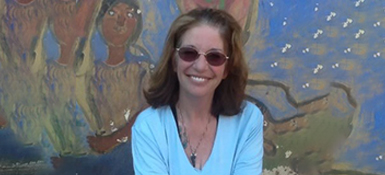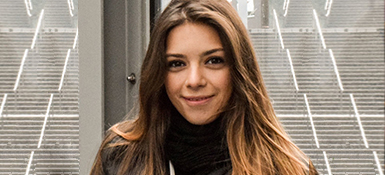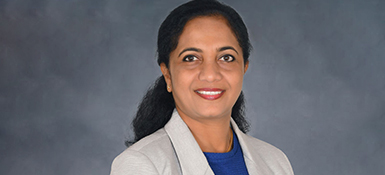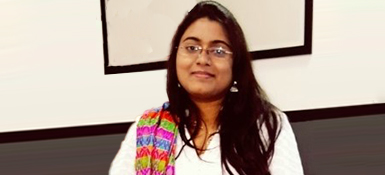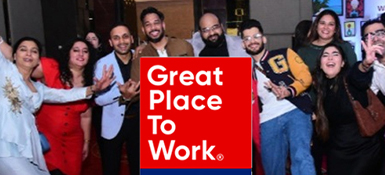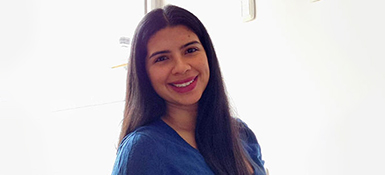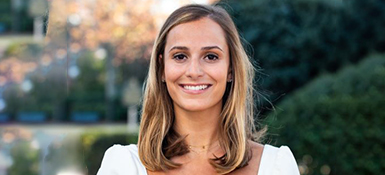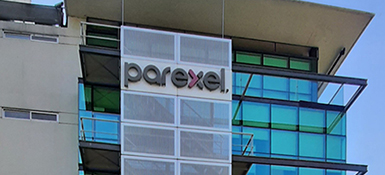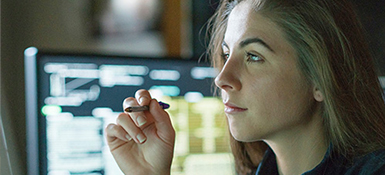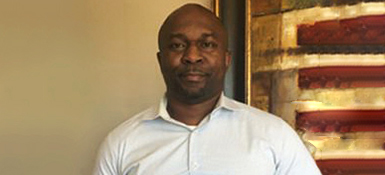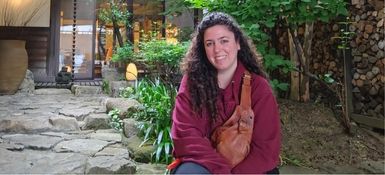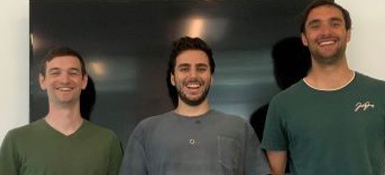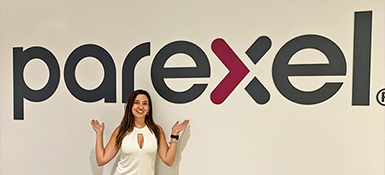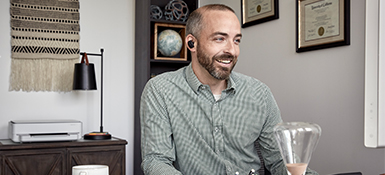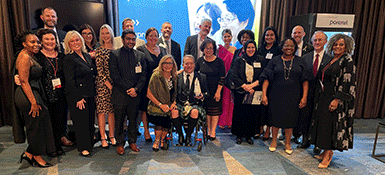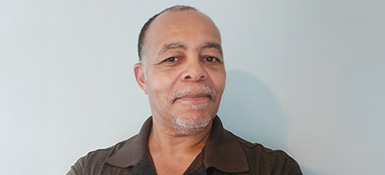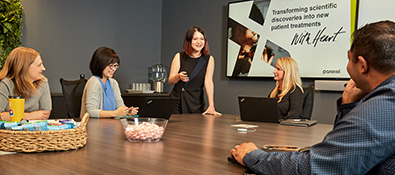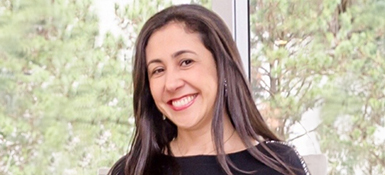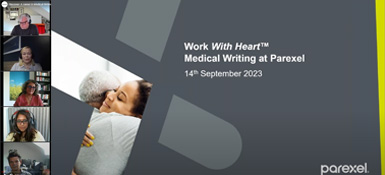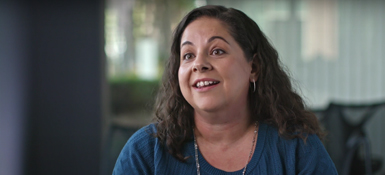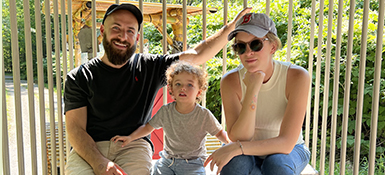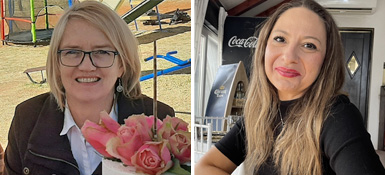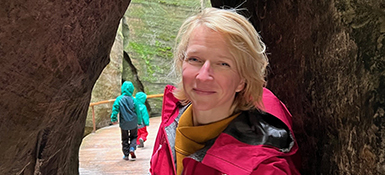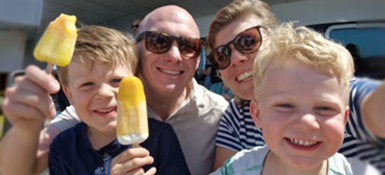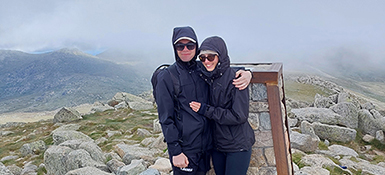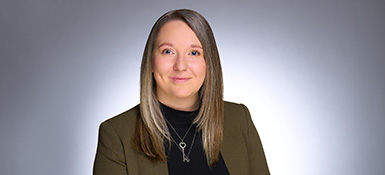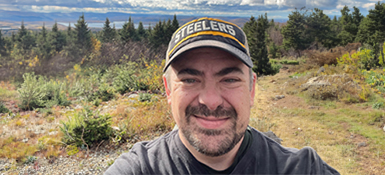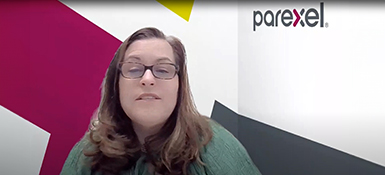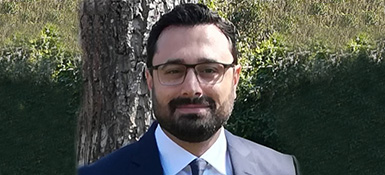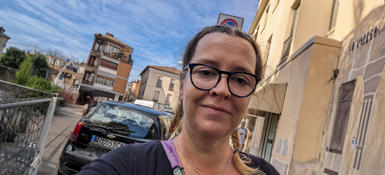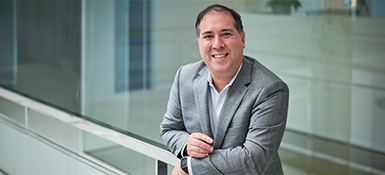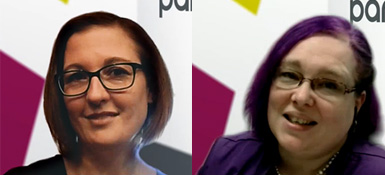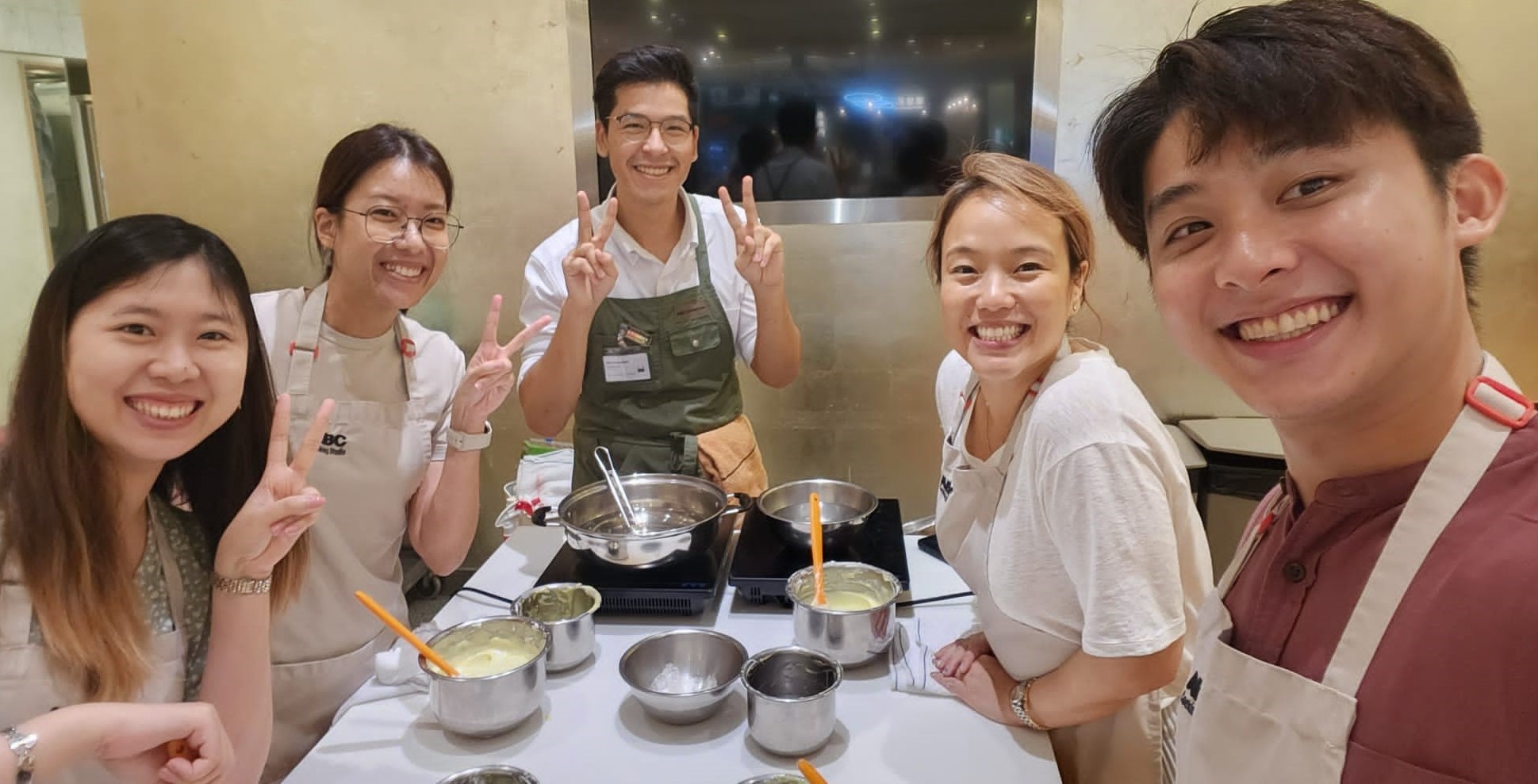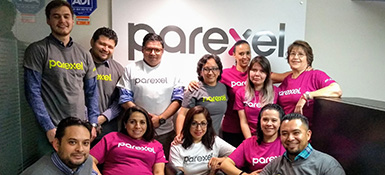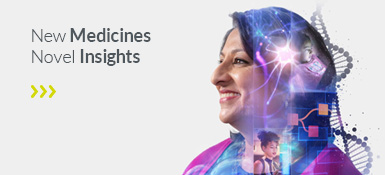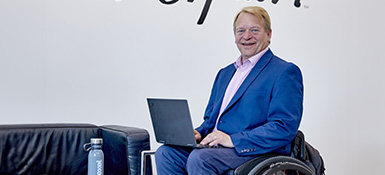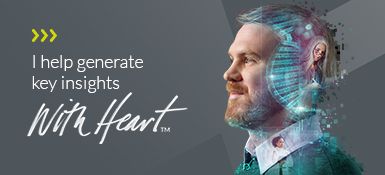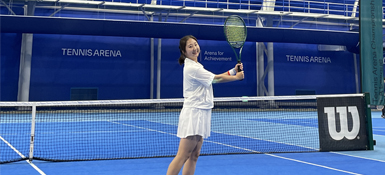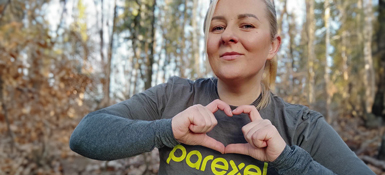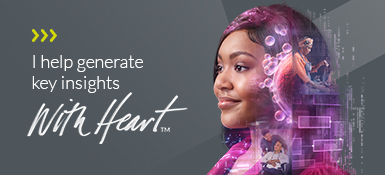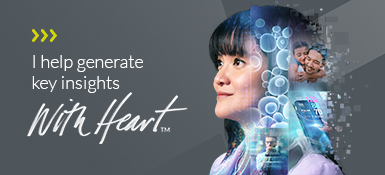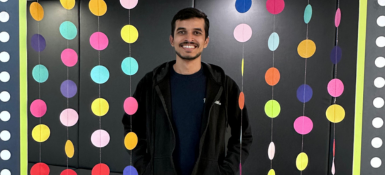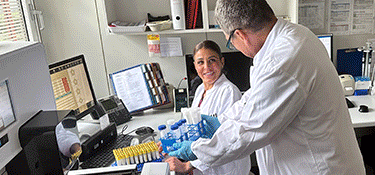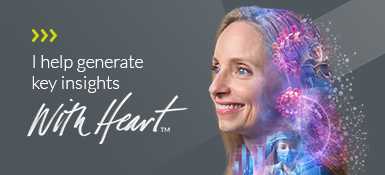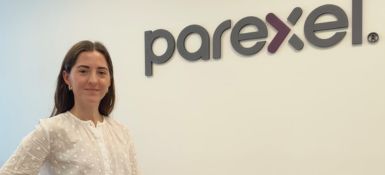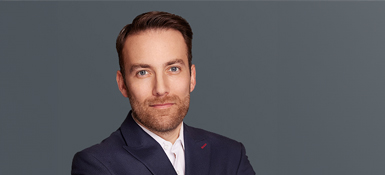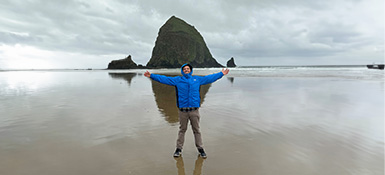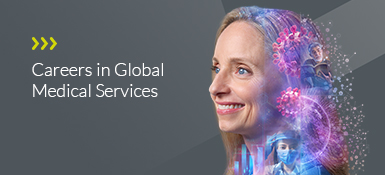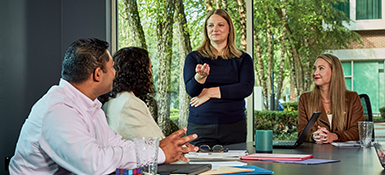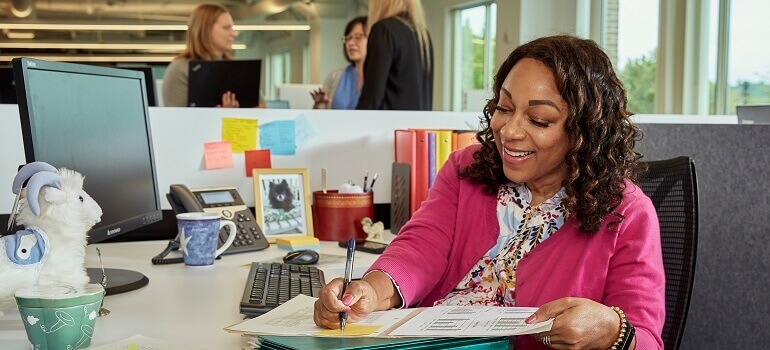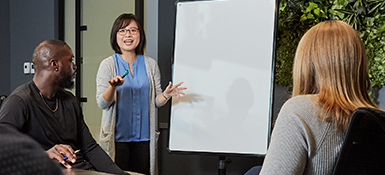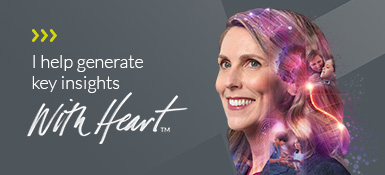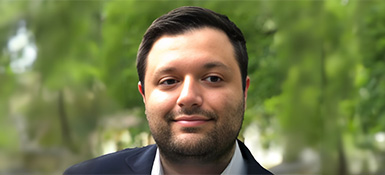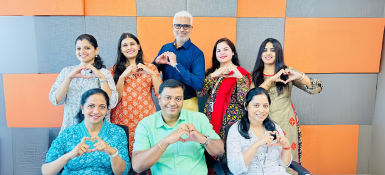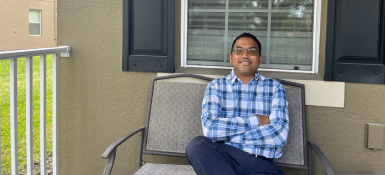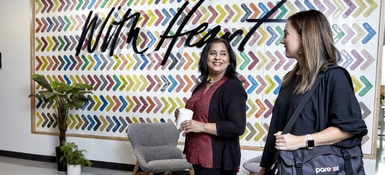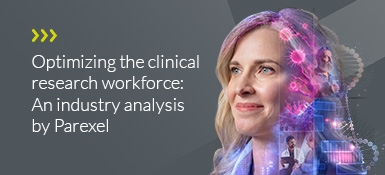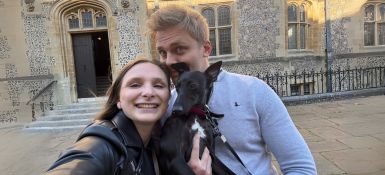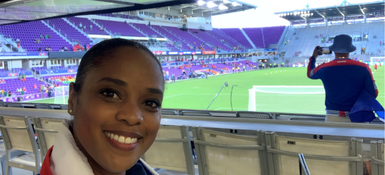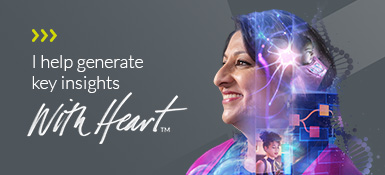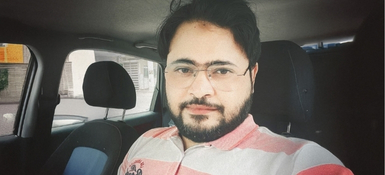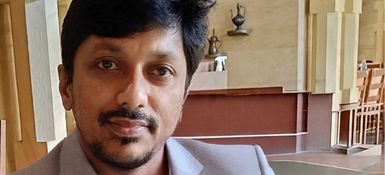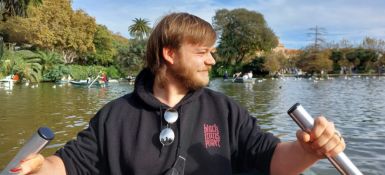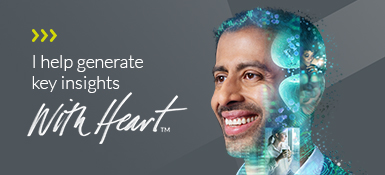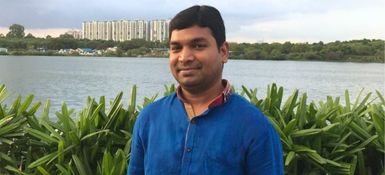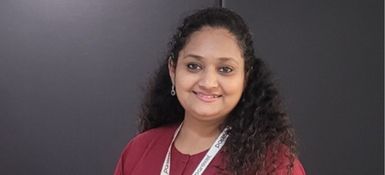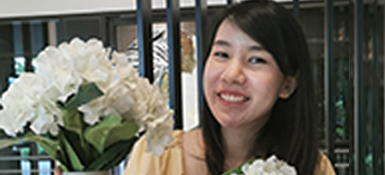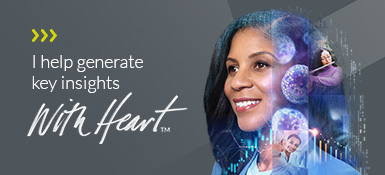What does a day in the life of an Associate Director of Statistical Programming look like?
As an Associate Director of Statistical Programming at Parexel, with six and a half years at the company and over 20 years of industry experience, my days are dynamic and multifaceted. A typical day often begins with attending global meetings to discuss and address any challenges, usually resourcing in nature. Following this, I conduct one-on-one meetings with some of my direct reports, checking in on project status and providing guidance, addressing concerns, and helping them grow in their careers. There's always a fair amount of management administrative work to handle, from reviewing timesheets to checking LMS compliance and planning team strategies and objectives. One of the most exciting aspects of my role is tackling unexpected challenges that arise, where I can draw on my experience to analyze complex situations and drive innovative solutions.
Throughout the day, I collaborate with my colleagues ensuring our Biostatical and Statistical programming teams are aligned and meeting the expectations of our sponsors. Amidst these activities, I also try to stay updated with the latest industry trends and technological advancements, particularly the use of AI in the realm of programming.
Regardless of the task at hand, I always keep in mind how our work impacts patients, ensuring that everything we do contributes to the development of potentially life-changing treatments. Every day brings its own set of challenges and opportunities, making my role both rewarding and impactful in the broader context of clinical research and patient care.
What part of your job are you passionate about and would like to share?
My passion is witnessing the growth and development of my team members. There's great satisfaction in seeing individuals take on new challenges, apply their knowledge to novel scenarios, and grow more confident in their abilities. Like watching a garden flourish, you plant the seeds, provide the right environment, and then step back to watch the magic happen.
There are lots of inspirational leadership quotes but one that I like is by Lao Tzu: "A leader is best when people barely know he exists. When his work is done, his aim fulfilled, they will say: we did it ourselves." That's the kind of leader I strive to be – nurturing talent and fostering independence. It's this behind-the-scenes impact that drives me and makes my role deeply rewarding.
Empowering others to shine, to find their own solutions, and to realize they have the strength to stand on their own, for me is effective leadership. Trying to be the invisible hand that guides, the quiet voice that encourages, and the steady presence that supports. When I see one of my team tackle a complex problem without needing to turn to me, or when I observe them confidently presenting their ideas, I know I've succeeded.
What skills are needed to be successful within your team?
Success within our team requires a unique blend of:
- Technical knowledge
- Adaptability
- Interpersonal skills
While a solid understanding of the rules and regulations governing our work is fundamental, true success lies in the ability to apply this knowledge flexibly to real-world scenarios.
In the realm of clinical research and statistical programming, we're dealing with patient data that rarely fits neatly into predefined categories, and studies seldom unfold exactly as outlined in the protocol. Therefore, the ability to think critically and creatively is paramount.
We need team members who can navigate the grey areas, who can look at a challenging situation and see not just the obstacles, but the potential pathways forward. Effective communication is another crucial skill. Our team members must be adept at discussing complex challenges with both internal colleagues and external stakeholders, clearly articulating options, potential hurdles, and proposed solutions.
How do you work "With Heart™" and what does it mean to you?
Working 'With Heart ™' for me is about recognizing the impact our work has on patients' lives, even when our role might not be in the spotlight. As a programmer, my contributions may often seem behind the scenes, but they form a critical link in the chain of drug development. There's an immense sense of pride when I see a drug I've worked on become a 'blockbuster' or feature in TV advertisements. It's a reminder that our efforts in data analysis and statistical programming play a vital role in bringing life-changing treatments to market. However, the true meaning of working 'With Heart ™' becomes most apparent when it hits close to home.
When I see family members or friends benefiting from medications I've helped develop, it brings a deeply personal dimension to my work. Even in challenging scenarios, particularly with oncology drugs, there's a profound sense of comfort knowing that my past efforts are directly contributing to the well-being of loved ones. This personal connection to the end result of our work – whether it's alleviating symptoms, improving quality of life, or potentially saving lives – is what truly embodies working 'With Heart ™' for me. It's a reminder that behind every piece of data we work with , there's a real person whose life could be transformed by our diligence and dedication. This realization should impact every task, no matter how small, with a sense of purpose and compassion, to maintain the highest standards in everything we do.
Has there been a project you've worked on that has been rewarding and how?
One of the most rewarding projects I've had the privilege to work on at Parexel has been the Neurodivergent hiring initiative, which we undertook in collaboration with Specialisterne, an external vendor specializing in this area. Professionally, this project pushed me out of my comfort zone, allowing me to acquire new skills and broaden my perspective on talent acquisition and workplace diversity. The initiative challenged our traditional hiring norms, prompting us to reevaluate and adapt our processes to be more inclusive. By following Specialisterne's established methodology, we successfully hired several neurodivergent individuals, and it's been incredibly gratifying to witness them thrive within our organization. Their unique perspectives and skills have undoubtedly enriched our work environment.
On a personal level, this project resonated deeply with me as I have several friends with neurodivergent children. Being involved in promoting inclusiveness within Parexel has given me a sense of contribution towards creating a more accepting and diverse workplace – not just for our current employees, but for the next generation entering the workforce. It's heartening to think that our efforts might be paving the way for greater opportunities for neurodivergent individuals in our industry.
How do you value Parexel keeping the patient at the heart of everything we do?
Parexel's emphasis on patient-centricity is evident in how we design our studies, how we handle data, and even in how we approach problem-solving. We're constantly encouraged to consider the patient perspective, to think about how our work can contribute to better outcomes, reduced burden on trial participants, and ultimately, to bringing life-changing treatments to those who need them most. This focus keeps us grounded in the real-world impact of our work and serves as a powerful motivator.
It's particularly meaningful to me when I consider that the drugs we help develop might one day benefit my own loved ones or members of my community. Parexel's commitment to keeping patients at the heart of everything we do isn't just valuable – it's essential. It gives our work profound meaning and constantly reminds us of the human lives behind the data we handle. This patient-first mentality is, in my opinion, what sets Parexel apart and what makes our contributions to the field of clinical research truly significant.
How do you and your team take quality seriously?
Quality is not just a priority for our team; it's the very foundation of everything we do. We understand that the success of our group is 100% dependent on the quality of our work, and this realization permeates every aspect of our operations. For us, taking quality seriously means adopting a mindset where excellence is the only acceptable standard. Beyond formal processes, we have a culture where every team member feels personally responsible for maintaining the highest standards.
Parexel's unwavering commitment to keeping the patient at the heart of everything we do is not just a corporate slogan; it's a guiding principle that I value and see in our daily operations. This patient-centric approach is at every level of our organization, from high-level strategic decisions to the minutiae of our day-to-day tasks. As a statistical programmer, we might not interact directly with patients, but I'm acutely aware that every line of code we write, every dataset we analyze, contributes to decisions that will ultimately impact real people's lives.
We encourage a 'quality-first' mentality, where asking questions, double-checking work, and raising potential issues are not just accepted but expected. Continuous learning and improvement are also key components of our quality focus. Our commitment to quality isn't just about meeting standards; it's about setting them, constantly raising the bar, and never compromising on the excellence that defines our team's reputation and success.
How does Parexel support flexibility and work-life balance?
At Parexel, there's a genuine understanding that our lives extend beyond the workplace, and sometimes personal commitments inevitably intersect with professional responsibilities. This recognition forms the foundation of our approach to flexibility and work-life balance. The key to making this work effectively lies in clear and transparent communication. We've cultivated an environment where team members feel comfortable expressing their needs, whether it's stepping away for a personal matter or adjusting their work hours to accommodate life's demands.
As a manager, I encourage my team to be open about their requirements, and in return, I strive to be accommodating whenever possible. The underlying principle is simple: as long as we're meeting our ultimate goals and timelines, we can be flexible with each other. This approach isn't just about being lenient; it's about fostering a culture of trust and mutual respect. We understand that life doesn't always conform to a 9-to-5 schedule, and by allowing for flexibility, we often find that team members are more engaged, and productive. Whether it's a parent needing to attend a school event, someone caring for an elderly relative, or simply managing personal appointments, we make it work. Ultimately, this approach not only benefits individual employees but also contributes to a more positive, supportive, and productive work environment for everyone.
How do you feel empowered and accountable?
At Parexel, I feel genuinely empowered and accountable in my role, which stems from a culture that encourages proactive problem-solving and personal responsibility. The expectation here isn't to simply identify issues and pass them along the chain of command – we're encouraged and expected to address challenges head-on. This mentality fosters a sense of ownership. When I encounter a problem, I'm not just permitted but expected to take initiative, to think critically, and to propose solutions.
How do you see our core value "Respect" in action within the company and your team?
Within our company how we value and consider the opinions of everyone, regardless of their position or tenure. In our meetings and discussions, every voice matters. We create an environment where team members feel safe to express their thoughts, share their ideas, and even respectfully disagree. This inclusive approach isn't just about being polite; it's about recognizing that diverse perspectives lead to better outcomes. Moreover, respect is evident in how we handle disagreements. Differences of opinion are seen not as conflicts to be avoided, but as opportunities for growth and innovation. We engage in constructive debates, always keeping in mind that we're critiquing ideas, not individuals. This respectful approach fosters an atmosphere of trust and openness, where people feel valued for their contributions and are more willing to go the extra mile.
What have you experienced at Parexel but not anywhere else?
While I've been fortunate to work with excellent colleagues throughout my career, there's an aspect of Parexel's culture that is different: the openness to challenge and improve existing processes without fear of repercussion. This isn't to say that such an attitude was entirely absent in my previous roles, but at Parexel, it feels part of our culture. We don't simply accept that something should be done a certain way because "that's how it's always been done." Instead, there's a willingness to question, to explore, and to innovate. We invite ideas from all corners, recognizing that fresh perspectives and diverse experiences can lead to better, more efficient ways of working. Whether you're a new hire or a seasoned veteran, your voice matters, and your ideas are welcomed.
It's empowering to work in an environment where you can openly discuss potential enhancements to our processes, knowing that your suggestions will be given serious consideration. This approach fosters a sense of ownership and engagement among team members. It demonstrates Parexel's commitment to excellence and adaptability in the ever-evolving landscape of clinical research.
How has Parexel supported your career growth?
My journey at Parexel has been one of continuous growth and development, thanks to the company's supportive environment and the guidance of line managers. Just as I find joy in nurturing the growth of others, I've been fortunate to experience that same level of encouragement in my own career.
My managers have consistently pushed me beyond my comfort zone, urging me to take on diverse and challenging tasks that have broadened my skill set and perspective. They've encouraged me to submit papers for conferences, a process that not only enhances my professional visibility but also contributes to the wider community. Parexel has also provided opportunities to get involved in both local and global initiatives, allowing me to gain a more comprehensive understanding of the organization and the industry at large.
What stands out most is the faith my superiors have shown in my abilities. They've recognized the skills and experience that have brought me to my current position and have actively supported my ambitions for further growth. The company's commitment to employee development is not just a policy on paper, but a lived experience. It's this blend of challenge, opportunity, and trust that has made my career journey at Parexel so rewarding and has reinforced my confidence in achieving more within the organization.
This role was a far cry from the data-driven, highly regulated environment I was working in the rest of the year. I became an expert in the logistics of serving beer on a massive scale – I can tell you exactly how to pull 300 pints in a minute or navigate the dense crowds at the Pyramid stage at Glastonbury. It was a job that required a unique blend of skills: crowd management, rapid problem-solving, managing a team off over 1000 staff and volunteers and the ability to keep cool under pressure – skills that, surprisingly, have served me well in my professional career.
This experience not only honed my organizational abilities but also provided me with some unforgettable moments. I had the opportunity to see some of my favorite bands perform, and being the person in charge of the beer made me quite popular! I often found myself interacting with musicians and festival-goers alike, creating connections that spanned from the mosh pit to the VIP area.



